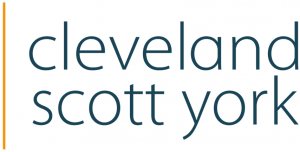Why did you choose a job in this profession?
I studied Chemistry at University where I really enjoyed learning about the scientific concepts in lectures and their real-world applications.
When it came to considering career options, I quickly realised that the industries which most of my friends were going into didn’t really appeal to me. I also found that there aren’t many professions where I could continue working closely with Chemistry whilst not being in a laboratory. After completing an internship at one of the firms, patent law seemed like the perfect opportunity where I could leverage my scientific knowledge in a professional environment.
How did you get your job at CSY?
I started by researching firms which I thought I would be best suited to based on several factors including support offered during the qualification process, technology they work with and company values. I made a shortlist of firms which matched my criteria (Cleveland Scott York being one of them) and applied for advertised positions as well as sending some speculative applications.
After submitting my CV and cover letter I was invited to an interview. In the first part of the interview, I was asked to complete a written exercise which involved describing an invention depicted in a drawing. I had to define the invention in a concise way whilst still incorporating all the features essential to the function of the invention.
The second part of the interview was more of a chat with the partner who I now work with. I was asked a mixture of competency and technical questions and asked to describe a piece of stationery. In interviews it seems fairly common to asked to describe everyday objects in this industry, so if you are looking for some practice it might be useful to try describing random objects you have at home and extracting functions of the key features.
What are your main duties?
Day to day I have found that the duties do vary quite a lot, especially at the start of my career as I often spend a significant amount of time reading up on sections of the law which I haven’t encountered before.
Most of the time my work relates to different aspects of patent applications, starting from drafting all the way up to grant and post grant. This can range from working with clients to understand the invention, drafting applications in a way which maximises commercial value to the client, prosecution before European and UK patent offices, and preparing for oral proceedings in response to oppositions to the granted patent. Working on patents at various stages of prosecution provides an insight into the lifecycle of a patent.
Whilst most of the work is independent, I work closely under the supervision of a partner who provides a lot of feedback on my work.
Do you have any advice for anyone wanting to get into the profession?
If you think that a career in patent law might be for you, I strongly recommend attending open days which are run by some firms to gain a better understanding of the profession and to demonstrate your interest. Work experience and internships can be very competitive and hard to come by, so I would encourage you to keep an eye out on the IP Careers website – and indeed on the Cleveland Scott York one – for any opportunities.







